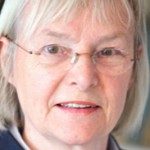Lien vers Pubmed [PMID] – 25113967
Differentiation 2014 Jul;88(1):13-5
John Gurdon has made major contributions to developmental biology in addition to his Nobel prize winning work on nuclear reprogramming. With the frog, Xenopus, as a vertebrate model, his work on mesoderm induction led him to identify a community effect required for tissue differentiation after progenitor cells have entered a specific mesodermal programme. It is in the context of this biologically important concept, with myogenesis as an example, that we have had most scientific exchanges. Here I trace my contacts with him, from an interest in histone regulation of gene expression and reprogramming, to myogenic determination factors as markers of early mesodermal induction, to the role of the community effect in the spatiotemporal control of skeletal muscle formation. I also recount some personal anecdotes from encounters in Oxford, Paris and Cambridge, to illustrate my appreciation of him as a scientist and a colleague.
